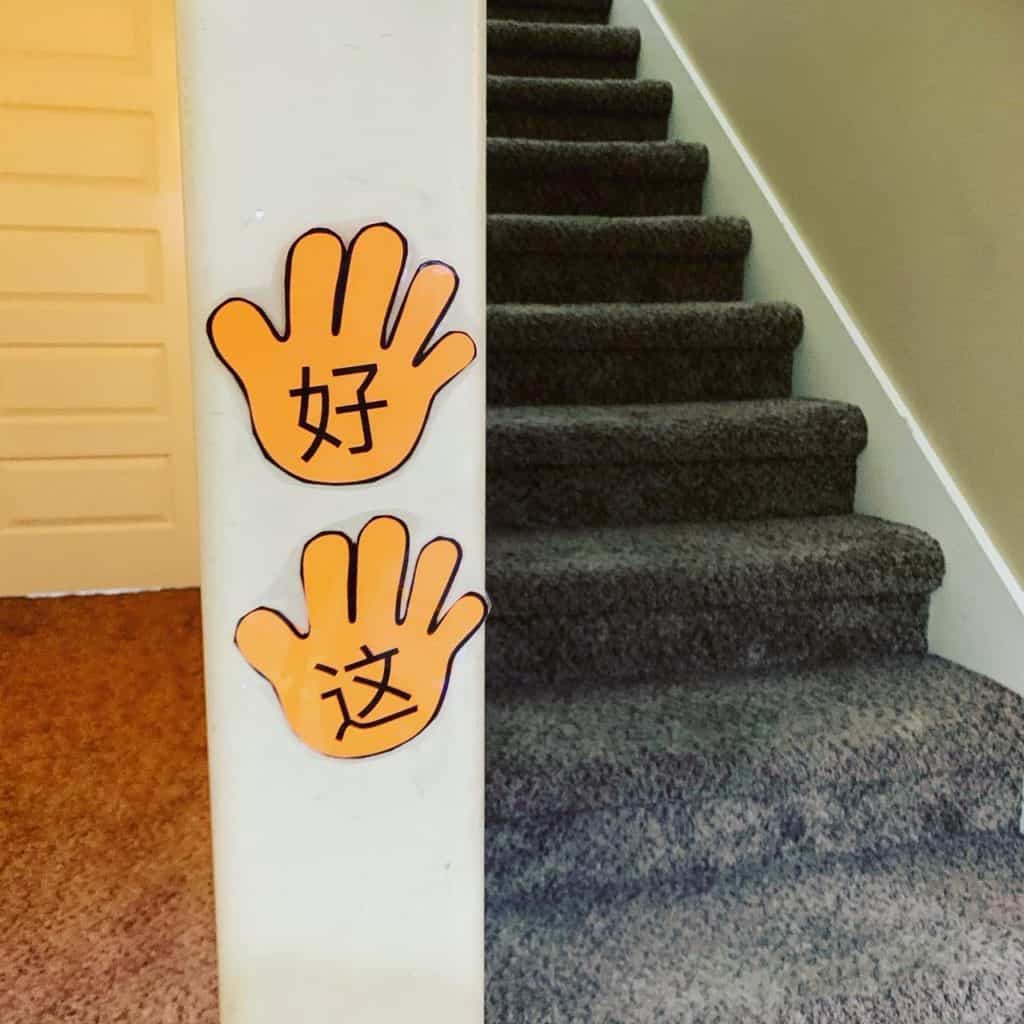Raising a bilingual child in Mandarin Chinese can be both a rewarding and challenging experience. With the right guidance, parents can ensure their children are equipped with the skills to become fluent in both English and Chinese. In this blog post, we will explore the secrets to raising a fluent child in Mandarin Chinese, from the best methods of language acquisition to creating an environment conducive to learning. Whether you’re a native Chinese speaker or just starting to learn the language, these tips can help you raise a bilingual child who is fluent in Mandarin Chinese.

Why Bilingualism is Important for Children
Bilingualism is an invaluable gift that parents can give their children. The benefits of raising a bilingual child in Mandarin Chinese extend far beyond language proficiency. Studies have shown that bilingualism enhances cognitive skills, boosts academic performance, and improves problem-solving abilities. It also increases cultural awareness and opens doors to a wider range of opportunities in the globalized world we live in today. Not to mention there has been research that shows bilingual individuals are less likely to develop Alzheimer’s or dementia.
Learning Mandarin Chinese, in particular, is a strategic choice. With China’s economic growth and influence on the rise, Mandarin has become one of the most important languages in the business world. By equipping your child with fluency in Mandarin, you are setting them up for success in future career prospects and international collaborations.
Bilingualism also helps foster a deeper connection to heritage and family roots. Being able to communicate with extended family members in their native language creates a stronger sense of identity and belonging. It allows children to maintain a cultural connection that may otherwise be lost.

Exposing Your Child to Mandarin Chinese
EXPOSURE to the language is VITAL. Exposing your child to Mandarin Chinese is essential in their journey to becoming fluent in the language. By creating an immersive environment, you can help your child develop their language skills naturally and effortlessly.
One effective way to expose your child to Mandarin Chinese is through daily conversations. Incorporate Mandarin into your daily routines and activities. For example, during meals, discuss the food in Mandarin or play games that involve vocabulary and phrases. This will not only make language learning fun but also create opportunities for your child to practice and reinforce what they have learned. I created a list of 300 questions in Chinese/English for my preschool class and it is a fun thing to use at home as well! You can start the day with the question as an easy conversation starter! Here is a blog post with links to the questions I’ve made.
Another effective method is through media and technology. Find age-appropriate Mandarin language books, videos, and apps that can help your child develop their listening and speaking skills. This could include Mandarin language cartoons, storybooks, or interactive language-learning apps.
Additionally, consider arranging playdates or language exchanges with Mandarin-speaking families. This will give your child the chance to interact with native speakers and practice their language skills in a real-life context.
Finally, if possible, travel to Mandarin-speaking countries or communities. Immersing your child in a Mandarin-speaking environment will not only expose them to the language but also deepen their understanding of Chinese culture and customs. We planned a family trip to Taiwan! If you happen to be a beginner like me, you might not know the amazing-ness of travel credit cards. I saved $750 on flights by using this card to buy tickets (which allowed me to receive 75,000 free miles/points)

Incorporating Mandarin into Daily Activities
Incorporating Mandarin into daily activities is an effective way to immerse your child in the language and reinforce their language skills. By making Mandarin a natural part of their daily routine, you can help them develop fluency in a fun and engaging way.
One simple way to incorporate Mandarin into daily activities is through labeling. Label everyday items in your home with their Mandarin names. For example, you can label the fridge, table, and chair with their Mandarin names. This will help your child associate the Mandarin words with their corresponding objects, making it easier for them to remember and use the vocabulary in daily conversations.
Another idea is to have designated Mandarin language times during the day. Set aside specific times when you and your child only speak Mandarin. This can be during meals, playtime, or before bedtime. By creating a dedicated language time, your child will become accustomed to using Mandarin in a variety of contexts and become more comfortable with the language. If you start with this, I recommend starting the day with Mandarin straight away in the morning. I’ve found it easier to start the day strong than end the day strong. Begin speaking Mandarin straight away in the morning and see how long you can last! Create a fun challenge for yourself where you track how long you can go before you stop speaking Chinese.
Additionally, incorporate Mandarin into activities such as arts and crafts. Choose Mandarin language books or worksheets for coloring and drawing sessions. This will not only engage your child in creative activities but also provide them with exposure to Mandarin vocabulary related to colors, shapes, and more.
Lastly, make use of technology to incorporate Mandarin into daily activities. There are various Mandarin language-learning apps and online resources that can be integrated into your child’s daily screen time. Whether it’s watching educational Mandarin videos or playing interactive language games, technology can make learning Mandarin a fun and interactive experience.

Encouraging Language Practice
Encouraging your child to practice Mandarin Chinese is crucial in their language learning journey. By creating a supportive and motivating environment, you can help them develop fluency and confidence in using the language. Here are some tips to encourage language practice:
- Set achievable goals: Break down the language learning process into small, achievable goals. Celebrate each milestone your child reaches, whether it’s learning new vocabulary or having a conversation in Mandarin. This positive reinforcement will keep them motivated to continue practicing.
- Create language challenges: Engage your child in fun language challenges. For example, have a Mandarin-only day where your child speaks only Mandarin with you and other family members. You can also create language games, like a Mandarin word search or a memory game with Mandarin flashcards. These challenges will make language practice enjoyable and interactive. I’ve created the first 100 Chinese characters into handprints that we hang in doorways of our home so the kids tap them and say the “password” before going through that door. I have printables in both Simplified and Traditional for this activity.
- Use rewards and incentives: Offer rewards and incentives for consistent language practice. For example, you can create a sticker chart where your child earns a sticker for every day they practice Mandarin. Once they reach a certain number of stickers, they can receive a small reward, like a special outing or a new toy. This will give them a sense of achievement and encourage them to continue practicing. I love a reading challenge. I’ve created charts or gameboards with 25 squares and encourage my kids to choose a small reward they’d enjoy. When we have read 25 Chinese books, they get to enjoy that reward.
- Incorporate language into hobbies and interests: Find ways to connect Mandarin with your child’s hobbies and interests. If your child enjoys cooking, have them help you prepare a Mandarin recipe. If they like drawing, encourage them to label their artwork in Mandarin. By incorporating language into their favorite activities, they will see the relevance and value of practicing Mandarin.
- Be a language model: Show your child that you value and use Mandarin yourself. Speak Mandarin around them, read Mandarin books, and watch Mandarin movies or TV shows together. By being a language model, you will inspire them to use Mandarin more frequently and confidently. Of all the things I feel I could be doing better at, this is one thing I feel I can do amazingly well. As a non-native speaker, I am CONSTANTLY reviewing flashcards, using learning apps, listening to shows in Chinese, and reading books in Chinese. If nothing else, my kids will know that I love this language and I am a committed language-learner!
Enrolling Your Child in Language Programs or Immersion Schools

Enrolling your child in language programs or immersion schools can greatly enhance their language learning journey in Mandarin Chinese. These programs provide a structured and immersive environment where your child can develop fluency and proficiency in the language.
Language programs specifically designed for bilingual education offer a comprehensive curriculum that focuses on language acquisition and cultural immersion. These programs often include daily Mandarin classes, language exchange activities, and opportunities to practice speaking and listening skills with native Mandarin speakers. Additionally, they may incorporate cultural events and field trips to deepen your child’s understanding of Chinese customs and traditions.
Immersion schools take language learning a step further by providing a full-time Mandarin immersion experience. In these schools, classes are conducted primarily in Mandarin, allowing students to develop strong language skills in a natural and immersive setting. These schools often have native Mandarin-speaking teachers who guide students through various subjects, ensuring that Mandarin is integrated into all aspects of their education.
Enrolling your child in language programs or immersion schools not only exposes them to Mandarin on a daily basis but also allows them to interact with peers who are also learning the language. This social aspect of language learning is crucial in developing conversational skills and building confidence in using Mandarin.
When choosing a language program or immersion school, consider factors such as the curriculum, teaching methodology, class size, and the qualifications of the teachers. Look for programs that prioritize interactive and engaging learning methods, as well as those that provide opportunities for cultural experiences and real-life language practice.
If you happen to live in Utah, USA come check out my in-person Chinese Preschool! Utah also has many elementary schools that offer a Mandarin immersion programs. I also offer a Virtual Chinese Preschool course that might work great for you and your little one. Check out the free classes and find more information here.

Building a Supportive Community
Building a supportive community is crucial when raising a bilingual child in Mandarin Chinese. Surrounding your child with individuals who speak Mandarin not only provides them with language exposure but also creates a supportive and encouraging environment for language learning.
One way to build a supportive community is to connect with other parents who are raising bilingual children. Join local language exchange groups or online forums where you can share experiences, resources, and tips with other families. These connections can be a source of inspiration and support, as you navigate the challenges and joys of raising a bilingual child.
Another idea is to seek out Mandarin-speaking playgroups or classes in your area. This gives your child the opportunity to interact with peers who are also learning Mandarin. Language immersion programs or camps are also great options, as they offer structured language activities and cultural experiences that further enhance language development.
Consider reaching out to Mandarin-speaking community organizations or cultural centers. They may offer events, workshops, or cultural activities that expose your child to the language and help them develop a deeper understanding of Chinese culture. Attending these events as a family not only creates memorable experiences but also reinforces the importance of Mandarin in your child’s life.
Finally, don’t forget about the extended family. If you have Mandarin-speaking relatives, encourage them to interact with your child in Mandarin. This can be through phone calls, video chats, or in-person visits. Maintaining a connection with family members who speak Mandarin not only strengthens the bond between generations but also provides additional language input for your child.
Other Ideas for Incorporating Mandarin into you bilingual routine
If you’re looking for even more ways to incorporate Mandarin into your child’s bilingual routine, we’ve got you covered! Here are some other ideas to help immerse your child in the language and reinforce their Mandarin skills:
- Cultural activities: Engage your child in cultural activities that celebrate Chinese traditions and customs. This could include celebrating Chinese festivals, learning about Chinese art and music, or even trying out Chinese calligraphy. By connecting language learning with cultural experiences, your child will gain a deeper appreciation for Mandarin and its cultural significance.
- Cooking in Mandarin: Get your child involved in the kitchen by cooking Chinese dishes together. Use Mandarin recipes and have your child help you with the ingredients and instructions. This not only exposes them to Mandarin vocabulary related to cooking but also allows them to practice their language skills in a practical and delicious way.
- Songs and rhymes: Singing songs and reciting rhymes is a fun and effective way to practice Mandarin pronunciation and vocabulary. Look for Mandarin children’s songs and rhymes online or invest in Mandarin language CDs. Sing along with your child and encourage them to join in. You can even organize a family karaoke night with Mandarin songs to make it even more enjoyable.
- Chinese language books: Expand your child’s Mandarin reading repertoire by finding Chinese language books suited to their age and reading level. Look for picture books, storybooks, or even comic books in Mandarin. Read together with your child, helping them understand the meaning of words and phrases. This will not only improve their reading skills but also expand their vocabulary and understanding of Chinese grammar.
- Pen pals: Encourage your child to connect with other Mandarin-speaking children from different parts of the world. Find pen pal programs or language exchange platforms where your child can correspond with a Mandarin-speaking child their age. This will not only give them an opportunity to practice their writing skills but also foster cultural exchange and understanding.
- Chinese board games: Incorporate Mandarin into your family game nights by playing board games that are in Mandarin. Look for Chinese versions of popular games like Scrabble, Monopoly, or Trivial Pursuit. Playing these games will provide your child with an entertaining way to practice their Mandarin skills while having fun with the family.
Conclusion and Reminders
As you embark on the journey of raising a bilingual child in Mandarin Chinese, remember that it is both a rewarding and challenging experience. By following the tips and strategies outlined in this blog post, you can ensure that your child develops fluency and proficiency in Mandarin.
First and foremost, give yourself time and grace as you embark on this journey. Changes don’t happen overnight and results do not show up for a while. I, myself have been on this journey for years and still often feel frustrated that it’s still not perfect, I still forget to speak Chinese and I wish I could be doing more. Be kind to yourself and encourage yourself. Reward and praise your efforts and whatever you do, don’t give up or quit! Just set a small goal and keep at it. You got this!
To expose your child to Mandarin Chinese, create an immersive environment by incorporating the language into daily activities and routines. Use labels, media, technology, and real-life interactions with native speakers to foster language acquisition.
Encourage your child to practice Mandarin by setting achievable goals, creating language challenges, using rewards and incentives, and incorporating Mandarin into their hobbies and interests. Be a language model yourself and show them the relevance and value of Mandarin in their lives.
Consider enrolling your child in language programs or immersion schools to provide them with a structured and immersive learning environment.
Lastly, building a supportive community of other bilingual families, Mandarin-speaking peers, and extended family members can greatly enhance your child’s language learning journey.

